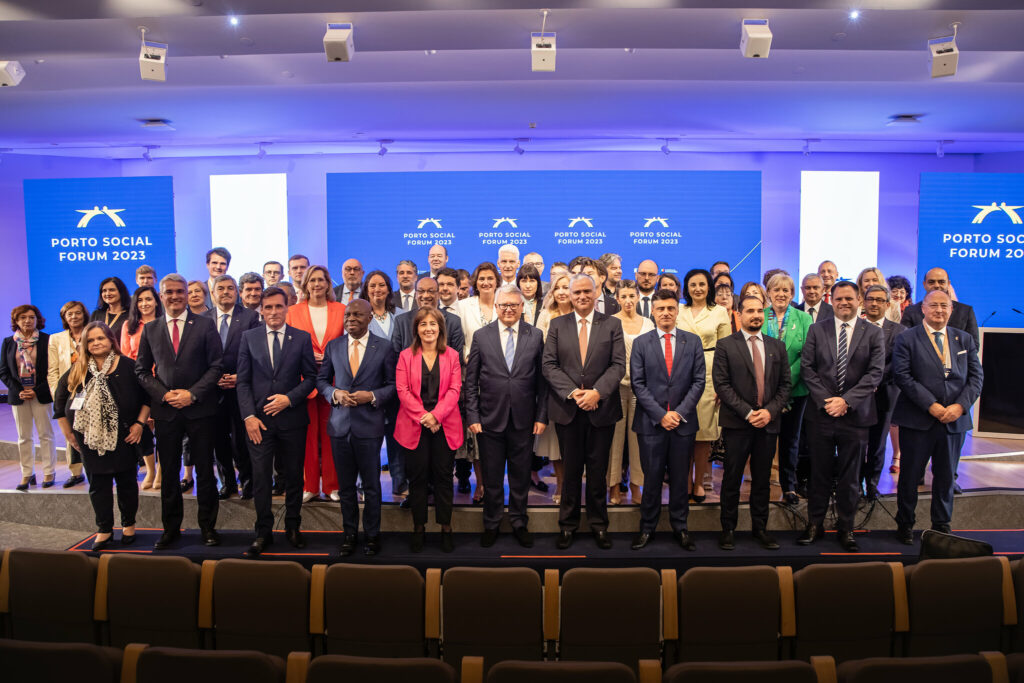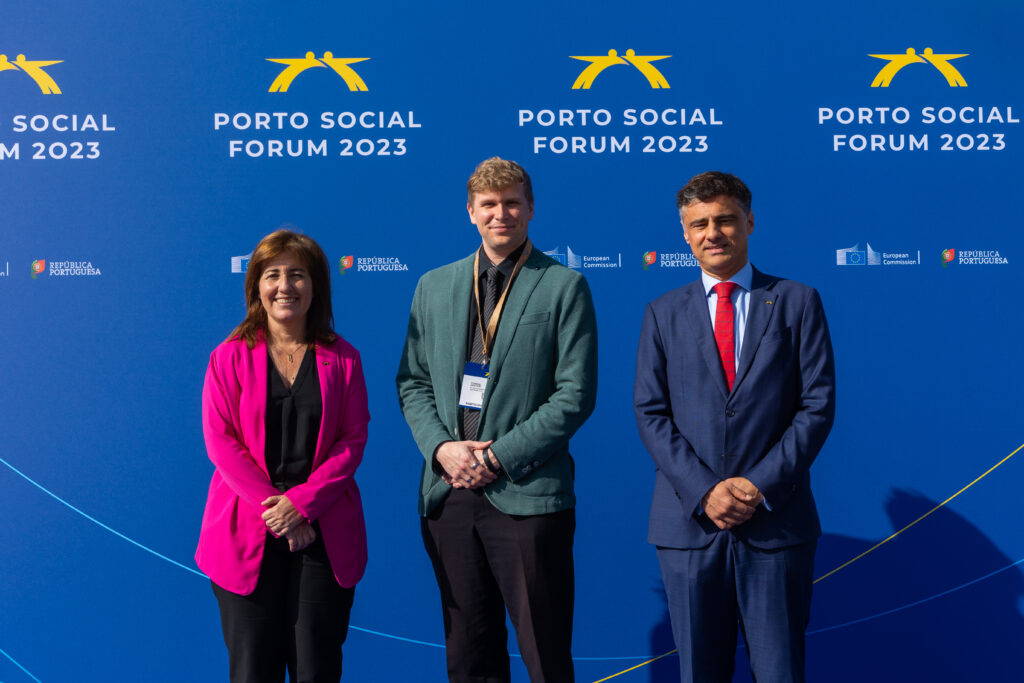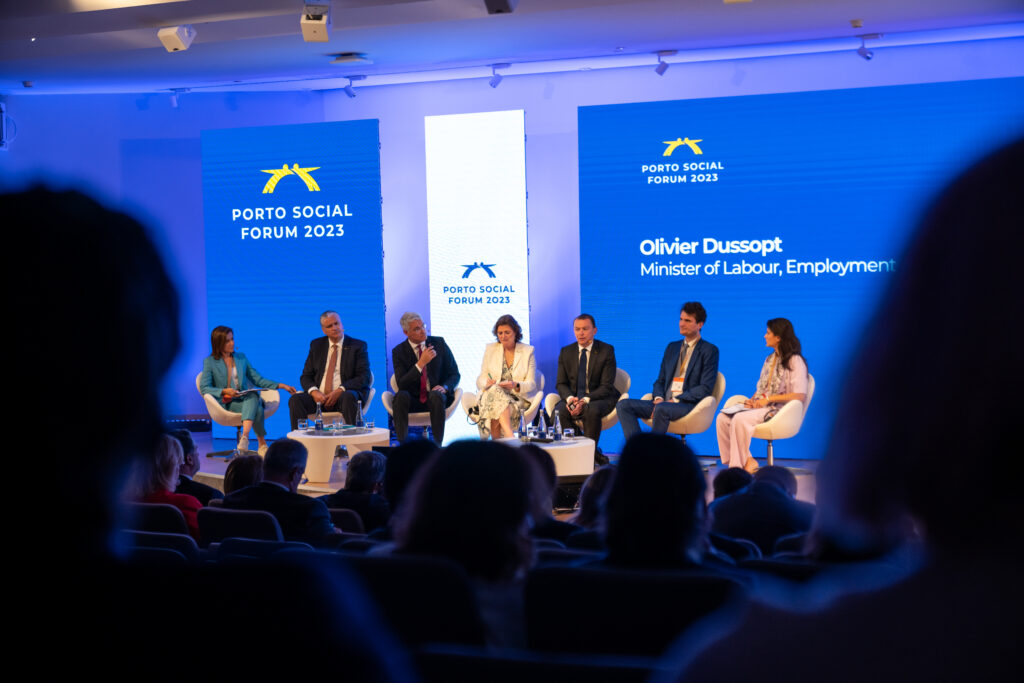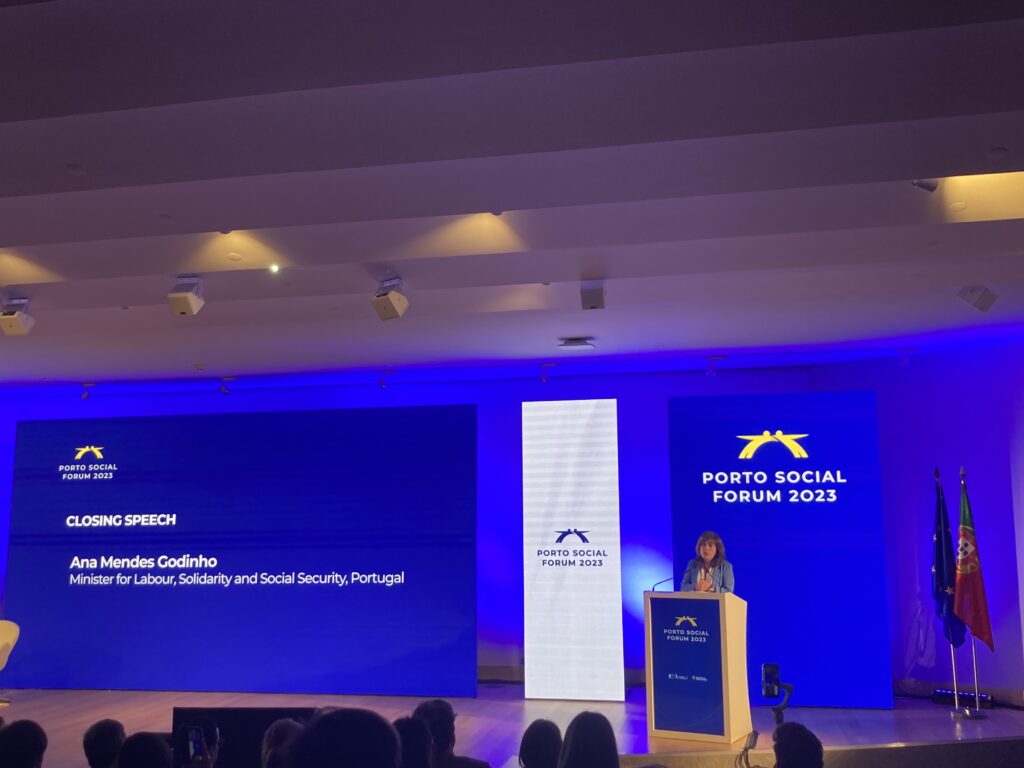EFFE participated in this year’s Porto Social Forum, alongside Portugese Prime Minister Antonio Costa, European Commissioner Nicolas Schmit, European Parliament’s Vice-President Pedro Silva Pereira and Portuguese Minister of Labour, Ana Mendes Godinho along with other European Ministers of Employment and Social Affairs, representatives of trade unions and employers and MEPs.
Inaugurated the 27th of May in Porto, this ‘Social Forum’ intended to take stock of the implementation of the commitments of European leaders in May 2021 during the Porto Social Summit. A Summit during which the Twenty-Seven Member States supported the European Commission’s action plan on the European pillar of social rights with three major objectives by 2030 relating to the employment rate (at least 78% of the population aged 20 to 64 in employment), continuing education (at least 60% of adults taking part in training each year) and reduction of poverty for 15 million people, including 5 million children, by compared to 2019.

The pillar, adopted in 2017 in Gothenburg, sets out 20 principles and 75 initiatives. Some of them have already been implemented, such as the directives on wage transparency to close the pay gap between men and women, on adequate minimum wages or the protection of safety and health at work with new initiatives on asbestos and other dangerous substances, as the Commissioner Schmit declared. The child guarantee, the care strategy and the first steps to regulate platform work have all been milestones, during this term, for a more social Europe. But he also said there was still a lot to do.
The discussions in Porto focused on skills in relation to the European Year of Skills and the importance of the European social model on the world stage, in particular in the context of enlargement of the European Union. Particular attention was given to education and vocational training as an effective tool to improve social inclusion. The importance of a holistic approach to retraining and professional updating has highlighted how skills development makes individuals free and able to make their own choices for a better future. The development of social skills is directly linked to more active civic engagement and participation in our communities. “Social investing is investing in people! declared Dragoş Pîslaru, Member of the European Parliament and Chair of the EMPL Committee.
The event, which brought together over 400 delegates from 30 countries in Porto for two days, further emphasised the importance of an integrated strategy to fight poverty, within the multidimensional issue of social exclusion and access to essential services for all people, especially children, highlighting the effective implementation of the European Child Guarantee in various European countries as an essential element for the success of the European Pillar of Social Rights.
The forum allowed to recognize that the EU social model is an asset on the world stage and to underline how strong skills, education and training policies can contribute to the creation of better jobs and faster integration into the labor market, fostering social inclusion and thereby increasing the resilience and competitiveness of the economy and society of the Union. “There is only economic prosperity with a strong social dimension,” underlined Ana Mendes Godinho, the Minister of Labor, Solidarity, and Social Security. “Collectively, we must be able to respond to emergencies, crises, but structurally we can never slowdown in structural social investment.”
The Portuguese government has explained that it wants to make the forum a permanent practice, to ensure that the idea of a social Europe remains a priority for European Union policymakers. The objective of this event is to hold biennial meetings that reproduce the spirit of convergence and debate achieved.



During the Forum, Spain and Belgium, which will hold the next two Council Presidencies, announced that they would unite and set the ambitions of the next EU Council Presidencies around key priorities: access to social protection, a framework of social convergence and the processing of social investments in the economic governance of the EU. They explained that they had agreed on a non-paper, in order to push for new social initiatives from the next European Commission and the European Parliament, after the elections of June 2024. The second vice-president and Minister of Labor and Social Economy of Spain, Yolanda Díaz, and Deputy Prime Minister and Minister of Labor and Economy of Belgium, Pierre-Yves Dermagne announced some concrete examples, such as the strengthening of minimum income and the promotion of more workers’ rights.
At the end of the conference, an Open Letter was signed by 37 European leaders, renewing the commitments of the Porto Social Summit for 2030, foreseeing the acceleration of the target for the European Child Guarantee, as well as in the dimensions of skills and qualifications in the world of the dual transition (digital and environmental).
The day before the Forum, on 26 May, EFFE participated in the side-event on “Achieving the twin transitions: investing in key competences for all”. During the discussions, participants called for more public funding to ensure a lifelong learning for all EU citizens, especially in the context of the ongoing green and digital transitions.
The record of the forum is available here.